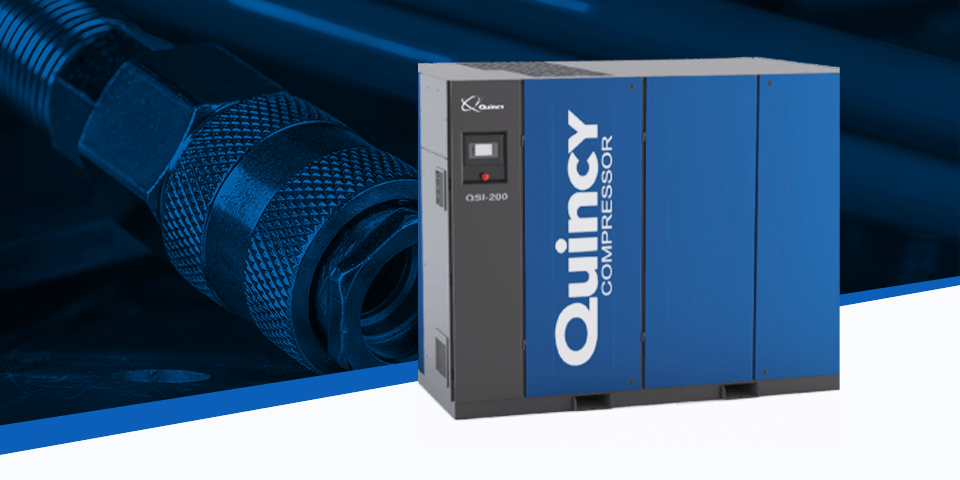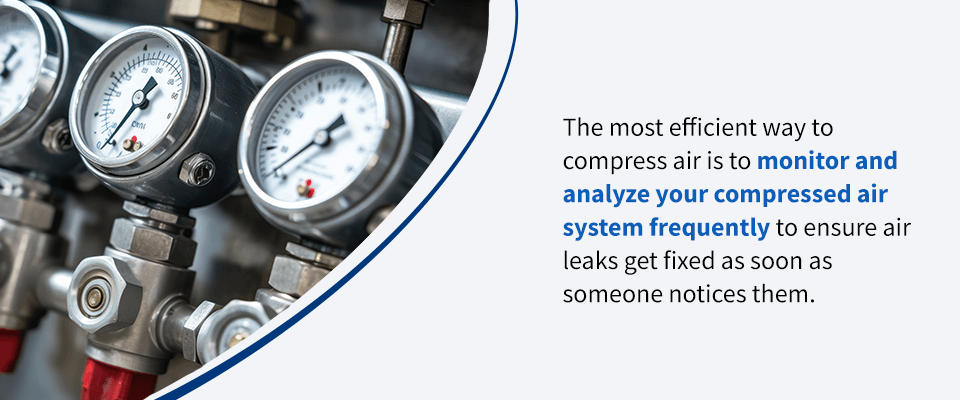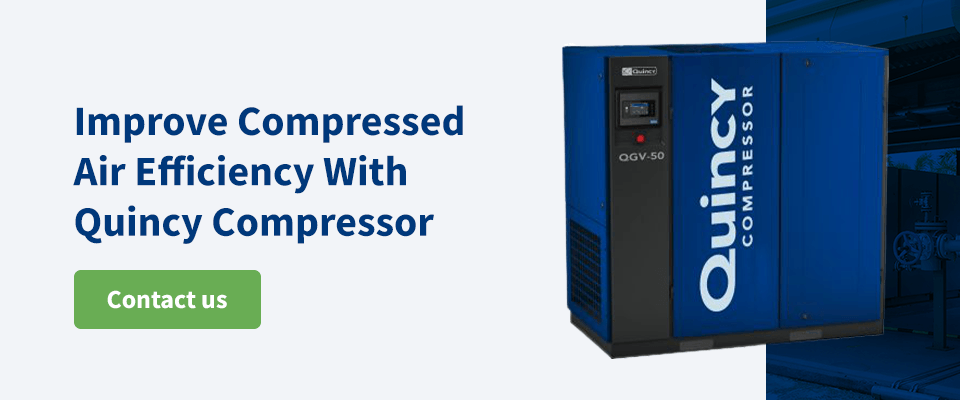
Companies use compressed air for a diverse set of applications. When users of these systems operate the technology, they may use the compressed air in inefficient ways. This leads to increased costs and energy waste for the company. Workers may even harm themselves when they lack knowledge about the consequences.
That’s why we created this guide to inform you about how to identify inappropriate uses of compressed air and the most efficient ways to compress air going forward.
Importance of the Correct Compressed Air Usage for Power Plant Efficiency
Compressed air is one of the most important utilities any business could have in the work environment. Many government entities also state that companies should monitor their compressed air facilities at all times, while other laws in California have put certain limits in place where efficiency is concerned.
This is because inappropriate uses of compressed air systems can lead to unnecessary energy loss and cost businesses more electricity. The biggest reason why it is essential to use compressed air correctly is because it can be dangerous for workers and cause workplace injuries.
When you use compressed air properly, you gain improved plant efficiency, safety enhancements, reduced labor and significant productivity improvements. You also get to protect the core components of the system, helping your compressed air system to last longer with the appropriate maintenance and monitoring.
What Are the Inappropriate Uses of Compressed Air?
There are certain processes that could be more efficient and economical with the correct practices. Despite being easily accessible and among the most expensive forms of plant energy, the misuse of compressed air is still common. Here are a few of the most common poor uses of compressed air and its effects.
Open Blowing
Blowing is when you use compressed air through an open, unregulated hose or pipe to blow onto floors, benches or clothes to dry or clean surfaces. Some personnel tend to do this because they believe it is more convenient. The reality is that it poses many potential risks, particularly when used on humans.
Aside from spending extra on this use, blowing on the clothes can cause particles to dislodge from the compressed air equipment and potentially enter the eyes. According to one report, a 12 PSI may cause an eye to blow out of the eye socket.
Accidentally penetrating the skin through an open wound may cause it to enter the bloodstream and initiate a stroke or heart attack if it finds its way to the brain or heart through the bloodstream. A better alternative may be to use a broom on floors instead and brushes, blowers or electric fans on people and items they plan to clean.
Sparging
Sparging occurs when you agitate, aerate, percolate or oxygenate liquid with compressed air. Doing so allows you to wick the liquid into a dry gas, which increases the dew point and the chances of the effect being severe. This commonly happens with caustics, oil and water rinse materials. If you’re frequently using compressed air to sparge and want to reduce costs, it may be best to use a low-pressure blower or mixer instead, which may also improve efficiency for the company.
Equipment and Personnel Cooling
Sometimes, workers may prefer to cool themselves off with compressed air because it feels more efficient. Aside from the dangers of fine particles entering the bloodstream, compressed air can also harm people when accidentally blown into the mouth. This may cause a ruptured stomach, lung or intestine. You can replace this practice with fans to protect your employees’ safety.
Atomizing
Have you ever used compressed air to disperse and transport liquid to a process as an aerosol? This is known as atomizing and can be a risky activity. When you atomize fuel in a boiler, the fluctuating pressure may impact the combustion’s efficiency. You might benefit more from using a low-pressure blower instead.
Idle or Abandoned Equipment
Some companies tend to leave non-operating and out-of-use equipment in their places instead of removing them. This can be a waste of compressed air because it will continue to flow to the equipment and drain your resources. Avoid this by fully disconnecting the equipment or putting an air-stop valve in place to prevent further wastage.
The Most Efficient Ways to Compress Air for Plant Efficiency
According to one study, the industry wastes 50% of compressed air. Companies can optimize these energy efficiency levels by 20%-50%. Plants may save significant amounts of money when they implement the appropriate practices.
Fix Leaks
The most efficient way to compress air is to monitor and analyze your compressed air system frequently to ensure air leaks get fixed as soon as someone notices them. This helps you ensure less release into the atmosphere, saving you more energy.
Save Energy With Alternatives
While it may seem convenient to use compressed air for simple tasks like cleaning an object or someone’s clothes, doing so may raise certain risks, cause your workers to waste energy and cost you more for additional compressed air. Using brushes, electric tools and vacuum systems are just a few examples of safer and more efficient alternatives that will help you save energy and money.
Reduce Pressure
When end-use equipment operates without a regulator, it’s easy for the equipment to release air at full pressure, wasting air and energy. Be sure to install pressure regulators, evaluate system requirements and reduce the pressure as needed.
Cut Waste
One of the most essential methods for saving energy is scheduling regular compressed air efficiency audits. This allows maintenance personnel to catch issues faster and in the early stages while reducing the chances of excessive energy waste. This may also normalize the practice of disconnecting idle equipment.
Improve Compressed Air Efficiency With Quincy Compressor
Eliminating the incorrect use of compressed air can significantly benefit your company as a whole, from reduced financial impact to waste and injury reductions. Implementing the practices mentioned in this guide may help your organization access even larger gains, such as a compressed air system with a longer life span and more efficient work processes.
If you’re looking for a way to improve compressed air efficiency, Quincy Compressor may be a beneficial solution for you. Quincy Compressor is an air compressor manufacturer that offers high-performance and energy-efficient solutions for even the most demanding applications. Many of our variable speed compressors provide up to 35% energy savings over conventional options, and our variable capacity control technology offers reliable efficiency for companies that require an operational flow of 50%-100%. To learn more about the air compressors we offer, contact our knowledgeable experts today!



